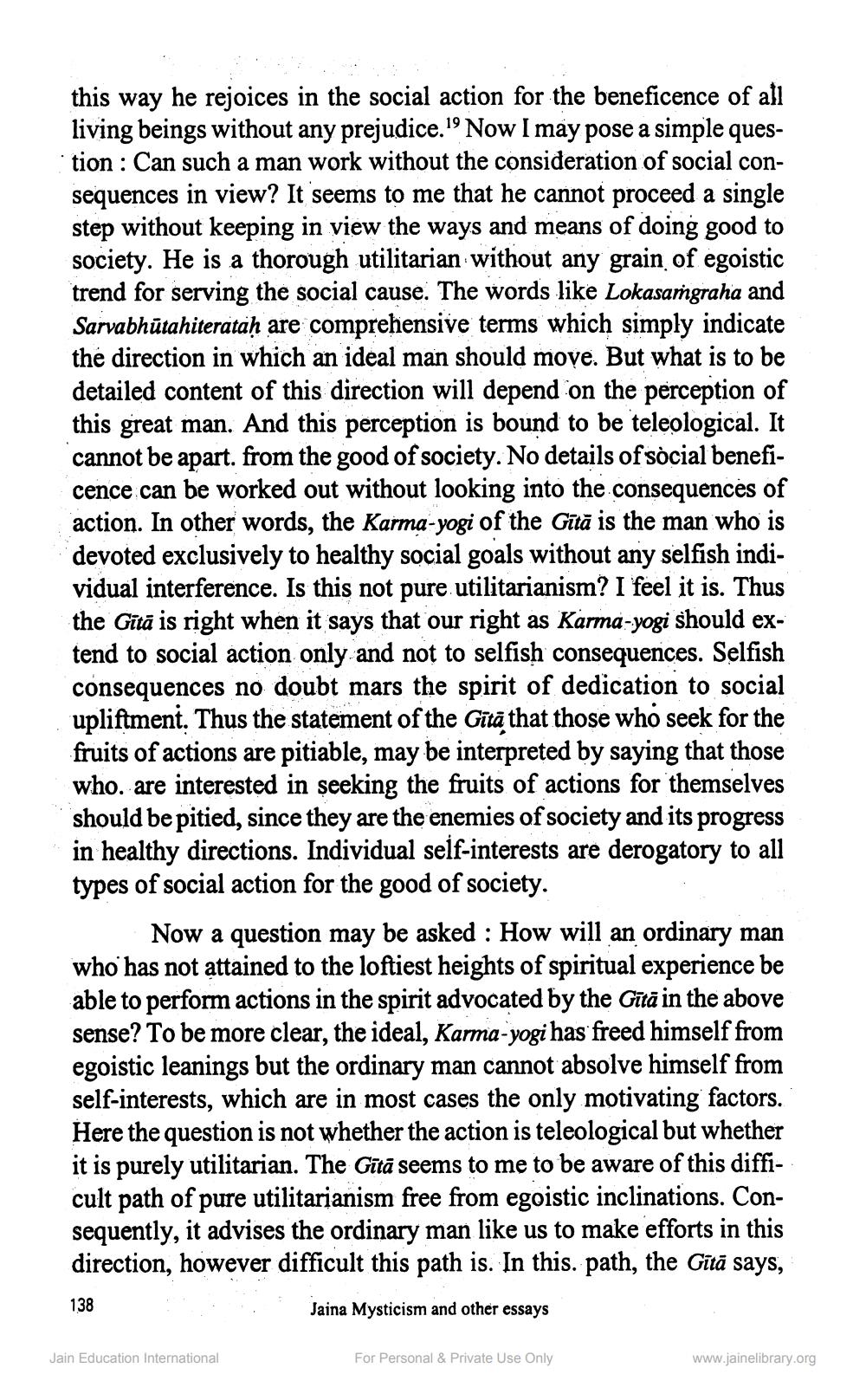________________
this way he rejoices in the social action for the beneficence of all living beings without any prejudice.'' Now I may pose a simple question : Can such a man work without the consideration of social consequences in view? It seems to me that he cannot proceed a single step without keeping in view the ways and means of doing good to society. He is a thorough utilitarian without any grain of egoistic trend for serving the social cause. The words like Lokasaṁgraha and Sarvabhūtahiterataḥ are comprehensive terms which simply indicate the direction in which an ideal man should move. But what is to be detailed content of this direction will depend on the perception of this great man. And this perception is bound to be teleological. It cannot be apart from the good of society. No details of social beneficence can be worked out without looking into the consequences of action. In other words, the Karma-yogi of the Gītā is the man who is devoted exclusively to healthy social goals without any selfish individual interference. Is this not pure utilitarianism? I feel it is. Thus the Gītā is right when it says that our right as Karma-yogi should extend to social action only and not to selfish consequences. Selfish consequences no doubt mars the spirit of dedication to social upliftment. Thus the statement of the Gitā that those who seek for the fruits of actions are pitiable, may be interpreted by saying that those who are interested in seeking the fruits of actions for themselves should be pitied, since they are the enemies of society and its progress in healthy directions. Individual self-interests are derogatory to all types of social action for the good of society.
Now a question may be asked : How will an ordinary man who has not attained to the loftiest heights of spiritual experience be able to perform actions in the spirit advocated by the Gītā in the above sense? To be more clear, the ideal, Karma-yogi has freed himself from egoistic leanings but the ordinary man cannot absolve himself from self-interests, which are in most cases the only motivating factors. Here the question is not whether the action is teleological but whether it is purely utilitarian. The Gītā seems to me to be aware of this difficult path of pure utilitarianism free from egoistic inclinations. Consequently, it advises the ordinary man like us to make efforts in this direction, however difficult this path is. In this. path, the Gītā says,
138
Jaina Mysticism and other essays
Jain Education International
For Personal & Private Use Only
www.jainelibrary.org




